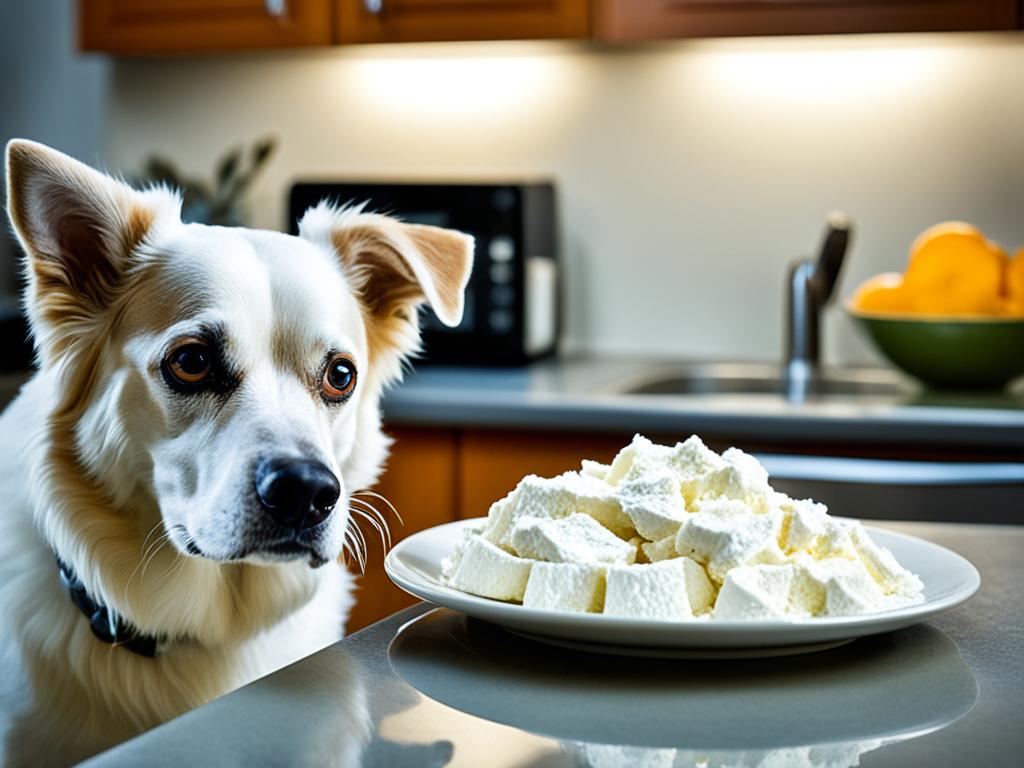Ricotta cheese, with its creamy texture and mild flavor, has become a beloved ingredient in cuisines around the world. But what exactly is ricotta cheese, and how does its composition compare to other dairy products? Let’s embark on a journey to uncover the secrets of this versatile cheese.
Originating from Italy, ricotta cheese derives its name from the Latin word “recocta,” meaning “recooked.” This name reflects the traditional method of making ricotta, which involves heating the whey leftover from cheese production. Through gentle heating, the proteins in the whey coagulate, forming the soft, creamy curds that give ricotta its distinctively smooth texture.
As we delve deeper into understanding ricotta cheese and its composition, we uncover not only its nutritional value but also its culinary versatility and rich history. So, whether you’re adding a dollop to your favorite pasta dish or indulging in a decadent dessert, ricotta cheese adds a touch of creamy goodness to every bite.And we also discuss that-can dogs eat ricotta cheese or not?
Potential Benefits of Ricotta Cheese for Dogs
Source of Protein: Aiding in Muscle Development and Maintenance:
Ricotta cheese is a dairy product that contains protein, which is essential for dogs to build and maintain muscle mass. Protein also plays a vital role in supporting various physiological functions, including enzyme production, immune system health, and tissue repair. Including ricotta cheese in your dog’s diet in moderation can contribute to meeting their protein needs and supporting overall muscle development and maintenance.
Calcium Content: Supporting Bone Health and Strength:
Calcium is an essential mineral for dogs that plays a crucial role in maintaining strong and healthy bones and teeth. Ricotta cheese contains calcium, which can contribute to meeting your dog’s daily calcium requirements. Adequate calcium intake is particularly important for puppies during their growth and development stages, as well as for adult and senior dogs to support bone health and prevent conditions like osteoporosis. Including ricotta cheese as part of a balanced diet can help ensure your dog receives sufficient calcium to support optimal bone health and strength.
Introduction of Variety: Adding Diversity to Your Dog’s Diet:

Introducing variety into your dog’s diet is beneficial for several reasons. Offering different types of foods, including ricotta cheese, can help prevent dietary monotony, keep mealtime interesting for your dog, and encourage them to consume a wider range of nutrients. Additionally, incorporating new foods into your dog’s diet can help identify any potential food sensitivities or allergies and provide enrichment through different textures and flavors. However, it’s essential to introduce new foods gradually and monitor your dog for any adverse reactions or digestive upset.
Overall, while ricotta cheese can offer some nutritional benefits for dogs, it should be fed in moderation and as part of a balanced diet. Consulting with a veterinarian can help determine the appropriate amount of ricotta cheese to include in your dog’s diet based on their individual nutritional needs, health status, and dietary preferences.
Risks Associated with Feeding Ricotta Cheese to Dogs
While ricotta cheese may seem like a tasty treat to share with your furry friend, it’s essential to be aware of the potential risks associated with feeding it to dogs. From digestive issues to concerns about fat and sodium content, understanding these risks can help you make informed decisions about including ricotta cheese in your dog’s diet.
Risks Associated with Feeding Ricotta Cheese to Dogs:
1. Lactose Intolerance: Potential Digestive Issues such as Diarrhea or Gas:
Ricotta cheese, like other dairy products, contains lactose, a sugar that some dogs may have difficulty digesting.
Dogs with lactose intolerance lack the enzyme lactase needed to break down lactose properly, leading to digestive issues such as diarrhea, gas, bloating, and abdominal discomfort.Feeding ricotta cheese to lactose-intolerant dogs can exacerbate these symptoms and cause discomfort or distress.
2. High Fat Content: Risk of Pancreatitis or Weight Gain:
Ricotta cheese is relatively high in fat, which can pose risks for dogs, especially those prone to pancreatitis or obesity.
Excessive fat intake can trigger inflammation of the pancreas, leading to pancreatitis—a painful and potentially life-threatening condition.Additionally, a diet high in fat can contribute to weight gain and obesity, increasing the risk of various health problems such as diabetes, joint issues, and heart disease.
3. Sodium Levels: Concern for Dogs with Heart or Kidney Conditions:
Ricotta cheese, like many dairy products, contains sodium, which can be harmful to dogs, particularly those with heart or kidney conditions.
High sodium intake can lead to water retention, increased blood pressure, and strain on the heart and kidneys.Dogs with heart disease or kidney problems may be more sensitive to elevated sodium levels and at higher risk of developing complications such as fluid buildup, hypertension, or kidney damage.
While ricotta cheese may be enjoyed by some dogs in moderation, it’s important to be mindful of the potential risks associated with its consumption. Monitoring your dog’s tolerance, choosing low-fat and low-sodium varieties, and consulting with a veterinarian can help mitigate these risks and ensure your dog’s overall health and well-being.
Signs of Negative Reactions to Ricotta Cheese:
Feeding ricotta cheese to your dog can lead to negative reactions, including symptoms of lactose intolerance, allergic reactions, and behavioral changes. It’s essential to be vigilant for any signs of discomfort or adverse effects after your dog consumes ricotta cheese.
1. Symptoms of Lactose Intolerance in Dogs:
Diarrhea: Loose stools or increased frequency of bowel movements may indicate difficulty digesting lactose.
Gas: Excessive flatulence or bloating can occur as a result of fermentation of undigested lactose in the gut.
Abdominal Discomfort: Dogs may exhibit signs of abdominal pain or discomfort, such as whining, restlessness, or reluctance to move.
2. Allergic Reactions:
Itching: Scratching, licking, or biting at the skin may indicate an allergic reaction to ricotta cheese.
Swelling: Swelling of the face, lips, or ears can occur as a result of an allergic response.
Gastrointestinal Upset: Allergic reactions may also manifest as vomiting, diarrhea, or other digestive disturbances.
3. Behavioral Changes or Discomfort After Consuming Ricotta Cheese:
Lethargy: A dog may appear tired, sluggish, or less active than usual after consuming ricotta cheese if they experience discomfort or digestive upset.
Restlessness: Some dogs may exhibit restlessness, pacing, or inability to settle comfortably after eating ricotta cheese.
Changes in Appetite: A decrease in appetite or reluctance to eat may indicate discomfort or gastrointestinal issues related to ricotta cheese consumption.
Monitoring your dog for signs of negative reactions to ricotta cheese is crucial for ensuring their well-being. If you observe any symptoms of lactose intolerance, allergic reactions, or behavioral changes after feeding ricotta cheese, it’s essential to discontinue its use and consult with a veterinarian for further evaluation and guidance. Your veterinarian can help identify the underlying cause of your dog’s symptoms and recommend appropriate dietary modifications or treatment options to address their specific needs.
Importance of Moderation in Feeding Ricotta Cheese to Dogs:
Feeding ricotta cheese to your dog in moderation is essential for several reasons:
Prevention of Digestive Issues: Ricotta cheese, like other dairy products, can cause digestive upset in dogs, especially those with lactose intolerance. Feeding it in moderation helps reduce the risk of symptoms such as diarrhea, gas, and abdominal discomfort.
Avoidance of Excess Calories: Ricotta cheese is relatively high in fat and calories, which can contribute to weight gain and obesity in dogs if consumed excessively. Moderation helps prevent overconsumption of calories and maintains a healthy weight.
Balanced Diet: Dogs require a balanced diet that includes a variety of nutrients from different food sources. While ricotta cheese can provide some nutritional benefits, it should not replace essential components of your dog’s diet, such as high-quality dog food formulated to meet their nutritional needs.
Recommended Serving Sizes Based on Your Dog’s Size and Health Status:
When feeding ricotta cheese to your dog, it’s important to consider their size, weight, and individual health status. As a general guideline:
Small Dogs (up to 20 lbs): Offer no more than 1 to 2 teaspoons of ricotta cheese as an occasional treat.
Medium Dogs (20 to 50 lbs): Limit ricotta cheese to 1 to 2 tablespoons per serving.
Large Dogs (50 lbs and above): Provide no more than 2 to 4 tablespoons of ricotta cheese at a time.
These serving sizes can be adjusted based on your dog’s tolerance, activity level, and dietary needs. Additionally, dogs with certain health conditions such as pancreatitis or obesity may require smaller portions or avoid ricotta cheese altogether.
Rotating Treats: Incorporating Ricotta Cheese as an Occasional Indulgence:
Rotating treats and incorporating ricotta cheese as an occasional indulgence can help prevent dietary monotony and keep your dog’s meals interesting. However, it’s essential to balance indulgent treats like ricotta cheese with healthier options and ensure they fit within your dog’s overall diet and calorie intake.
Variety: Offering a variety of treats, including ricotta cheese, helps prevent your dog from becoming bored with their diet and encourages them to try new flavors and textures.
Occasional Indulgence: Reserve ricotta cheese treats for special occasions or as a reward for good behavior, rather than offering them daily. This helps prevent overconsumption and maintains the novelty of the treat.
By practicing moderation, controlling portion sizes, and rotating treats, you can incorporate ricotta cheese into your dog’s diet in a safe and enjoyable way that supports their overall health and well-being. Remember to monitor your dog for any signs of digestive upset or adverse reactions and consult with a veterinarian if you have any concerns about their dietary habits or health status.
Dog-Friendly Substitutes for Ricotta Cheese:
Cottage Cheese: Cottage cheese is a dairy product similar to ricotta cheese but with a milder flavor. It is lower in lactose and can be easier for dogs to digest. Choose plain, low-fat cottage cheese without added sugars or flavorings.
Plain Yogurt: Plain, unsweetened yogurt is another dairy option that can serve as a substitute for ricotta cheese. It contains probiotics that promote digestive health and is lower in lactose compared to other dairy products. Look for yogurt with live active cultures and avoid varieties with added sugars or artificial sweeteners.
Pumpkin Puree: Pumpkin puree is a nutritious and fiber-rich alternative to ricotta cheese that dogs may enjoy. It is low in calories and can help support digestive health. Choose plain, unsweetened pumpkin puree without added spices or preservatives.
Nutritious Treats and Snacks:
Fruits: Many fruits are safe and healthy for dogs to enjoy as treats, including apples, bananas, blueberries, and strawberries. These fruits provide vitamins, minerals, and antioxidants that support overall health.
Vegetables: Vegetables such as carrots, green beans, broccoli, and cucumbers make excellent low-calorie snacks for dogs. They are rich in fiber and essential nutrients while being low in fat and calories.
Lean Meats: Cooked lean meats like chicken, turkey, or beef can be offered to dogs as protein-rich treats. Remove any bones, skin, or excess fat before serving, and opt for plain, unseasoned meat.
Homemade Recipes:
Frozen Yogurt Treats: Mix plain yogurt with mashed fruits such as bananas or strawberries, then freeze the mixture in ice cube trays for a refreshing and nutritious treat.
Pumpkin Peanut Butter Balls: Combine pumpkin puree with peanut butter and rolled oats to form a dough-like consistency. Roll the mixture into small balls and refrigerate until firm for a tasty and fiber-rich snack.
Carrot and Apple Pupcakes: Mix grated carrots and diced apples with whole wheat flour, eggs, and a small amount of honey to create pupcakes. Bake until golden brown for a wholesome and delicious homemade treat.
These alternatives and homemade recipes provide nutritious and tasty options for dogs, offering variety and enrichment to their diet while ensuring their health and well-being. Remember to introduce new foods gradually and monitor your dog for any signs of digestive upset or allergic reactions.

